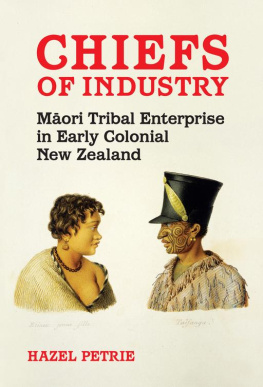First published 2004 by Berg Publishers
Published 2020 by Routledge
2 Park Square, Milton Park, Abingdon, Oxon OX14 4RN
605 Third Avenue, New York, NY 10017
Routledge is an imprint of the Taylor & Francis Group, an informa business
I. Schapera 2004
All rights reserved. No part of this book may be reprinted or reproduced or utilised in any form or by any electronic, mechanical, or other means, now known or hereafter invented, including photocopying and recording, or in any information storage or retrieval system, without permission in writing from the publishers.
Notice:
Product or corporate names may be trademarks or registered trademarks, and are used only for identification and explanation without intent to infringe.
ISBN 13: 978-1-8597-3849-8 (hbk)
PREFACE
This book is a completely revised version of a study published in 1943 and long out of print. That study, entitled Tribal Legislation among the Tswana of the Bechuanaland Protectorate, dealt with the role of chiefs as agents of social change and, in particular, with the changes they brought about by making new laws. It described the various kinds of legislative process current among the Tswana, and reviewed systematically the content and scope of the many laws made, from the earliest known instances up to the time of writing (1942), in eight different chiefdoms or 'tribes' (see p. 3); it also stated, where possible, why those laws were enacted, and discussed how far they really succeeded in establishing new ways of life.
Most of the material upon which it was based came from my own fieldwork. By 1942 I had spent almost two years intermittently with the Kgatla (1929-35), five months with the Ngwato (1935, 1940), three months each with the Ngwaketse (1938, 1941) and the Tawana (1940), and two months with the Kwena (1938, 1941). My investigations among the Kgatla covered virtually every aspect of tribal life. Elsewhere I was concerned primarily, though not exclusively, with special inquiries on behalf of the Bechuanaland Administration into such matters as law and custom, social structure, tribal history, and (1940-1) systems of land tenure. I also made use of relevant data contained in the published literature and unpublished Government records. For the remaining Tswana tribes (Malete, Rolong, and Tlokwa), with whom at that time I had only a fleeting personal acquaintance, I had to rely almost entirely upon Government records and information obtained for me by district officers.
The present study is more limited than the original in two ways. First, it omits discussion of the Malete, Rolong, and Tlokwa. Although I did ultimately do some fieldwork among them, for a fortnight or so in each case, I was obliged to concentrate mainly on problems of land tenure and labour migration. I therefore have much less information about them than for the five other tribes (to all of whom except the Tawana I returned again in 1943 and occasionally also later). To include them here would thus be misleading, since what I can say about the innovations of their chiefs is at best incomplete and certainly quite inadequate for comparative purposes.
Secondly, I have deliberately refrained from trying to bring the study up to date. The outbreak of World War II in 1939 heralded many important developments in Bechuanaland. But my systematic fieldwork ended in 1943, before the war was over and its effects fully apparent; and although I visited the country sporadically during the next few years, I have not been there since 1950 (except for a brief stay among the Ngwato in 1962). I am consequently unable to write with first-hand knowledge of what happened in each tribe during the recent period of rapid change that culminated in Bechuanaland's becoming the independent Republic of Botswana (1966). It therefore seems preferable and methodologically sounder not to go for any of them beyond 1940, the year in which I made my only trip to the Tawana. This, in turn, has led me to substitute the past tense for the 'ethnographic present' used in the original version for describing social conditions prevalent at the time of my fieldwork.
On the other hand, since that version was written I have done much more work on documentary sources, including especially unpublished Government and missionary reports and correspondence. The new material thus obtained has enabled me to add considerable detail about such topics as the chiefs' motives for innovation, their regard for public opinion, and the reactions of their subjects to what they did. I have also dealt more fully than before with changes made by them through other methods than formal legislation, changes that camc about independently of them, and the problem of how far they were originators of change and not merely borrowers or intermediaries.
In its present form the study is essentially a historical description and analysis of all changes known or said to have been made by chiefs of the five largest Tswana tribes up to the end of 1940. The earliest innovator specifically named as such in tribal traditions was the Ngwato chief Kgama I (ruled c. 1795-1817). I have in the sub-title therefore used the opening year of his reign as a convenient base line, even though the two changes attributed to him abolition of twin-killing (sec p. 133), and restriction of professional magicians (sec p. 131 n.) - cannot be dated precisely.
My general approach is comparative: of chiefs collectively with other agents of change (such as European traders and missionaries, the British Administration, and ordinary tribesmen), and of chiefs in different tribes with one another. Contact with Europeans, notably after the creation of the Protectorate (1885), was by far the most important cause of change. Missionaries and traders introduced much that was new. The Administration imposed laws and sponsored developments which the Tswana were in effect obliged to accept. Chiefs also borrowed for their tribes various institutions and practices of European origin, and established others in direct response to European requests or advice. But they did not do indiscriminately whatever Europeans wanted of them; they sometimes modified or even rejected imported usages that they disliked. In addition, they made many changes that owed little or nothing to European influence, and some of which actually preceded the arrival of Europeans in Bechuanaland. They themselves thus contributed both substantially and independently to the transformation of Tswana life.









